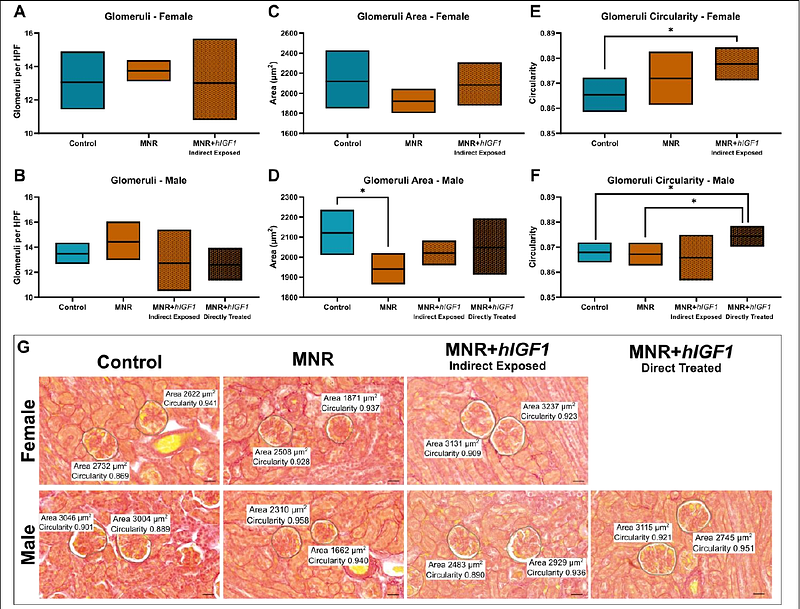Placenta hIGF1 nanoparticle treatment in guinea pigs mitigates fetal sex dependent FGR-associated effects on kidney structure and blood pressure-related signaling pathways

Placenta hIGF1 nanoparticle treatment in guinea pigs mitigates fetal sex dependent FGR-associated effects on kidney structure and blood pressure-related signaling pathways
Davenport, B.; Williams, A.; Regnault, T.; Jones, H.; Wilson, R.
AbstractFetal development in an adverse in utero environment significantly increases the risk of hypertension and cardiovascular disease. The kidneys play a pivotal role in the regulation of blood pressure and cardiovascular function, and perturbations in kidney structure and molecular profile are often demonstrated in offspring born fetal growth restricted (FGR). The aim of this study was to determine whether improving the in utero fetal growth environment with a placental nanoparticle gene therapy would ameliorate FGR-associated dysregulation of fetal kidney development. Using the guinea pig maternal nutrient restriction (MNR) model, we improved placenta efficiency and fetal weight following three placental administrations of a non-viral polymer-based nanoparticle gene therapy from mid-pregnancy (gestational day 35) until gestational day 52. The nanoparticle gene therapy transiently increased expression of human insulin-like growth factor 1 (hIGF1) in placenta trophoblast. Fetal kidney tissue was collected near-term at gestational day 60. Differences in kidney structure, glomeruli size and gene expression of extracellular matrix (ECM) remodeling and blood pressure regulation-related factors were demonstrated in sham-treated FGR fetuses but not observed in FGR fetuses who received placental hIGF1 nanoparticle treatment. We speculate that mitigating the FGR-associated changes in kidney architecture and molecular profiles might confer protection against increased susceptibility to aberrant kidney physiology in later-life. Overall, this work opens avenues for future research to assess the long-term impact of the placental hIGF1 nanoparticle gene therapy on cardiovascular function in offspring.